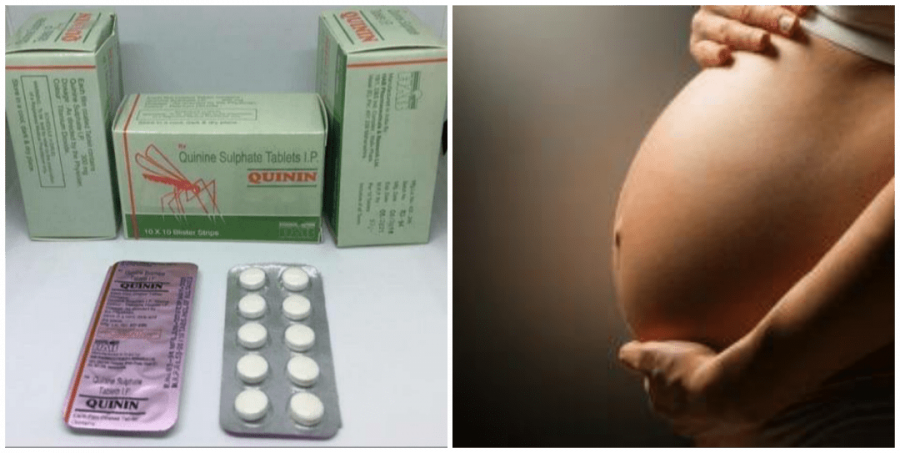Malaria is one of the most demoralizing contagious diseases. It is a bloodsucking infection that’s transmitted by mosquitoes. Malaria kills more than one million people every year.
Pregnant women and children have the highest morbidity and mortality death rate in Africa caused by malaria. The World Health Organization defined malaria as a disease of poverty caused by poverty. Pregnant women infected with malaria generally have more severe symptoms and outcomes than normal people. There would be higher risks of miscarriage, severe anemia, intrauterine death, premature delivery, maternal death, low-birth-weight neonates, and neonatal death. Malaria can be prevented with appropriate drugs, bed nets treated with insecticide, and effective educational outreach programs.
What malaria drugs can I use during pregnancy?

- Chloroquine
- Amodiaquine
- Quinine
- Azithromycin
- Sulfadoxine-pyrimethamine
- Mefloquine
- Dapsone-chlorproguanil
- Artemisinin derivatives
- Atovaquone-proguanil
- Lumefantrine
Malaria Drugs you shouldn’t use during pregnancy
They include:
- Halofantrine
- Tetracycline/doxycycline
- Primaquine
How can malaria be prevented?
Malaria can be prevented through the use of:
- Bed nets treated with insecticide
- Skin Mosquito repellants
- Insecticide-treated clothing, tents, and even sleeping bags
- Effective educational outreach programs on the dangers of malaria
- Screens on doors and windows most especially
- Long-sleeved clothes
- Anti-malaria medications
What are the causes of malaria during pregnancy?

- Low immunity: During pregnancy, one’s immunity levels drop which makes a pregnant woman a more likely target for Malaria. As a pregnant woman, you have to be very careful especially during your second and third trimesters of pregnancy to avoid complications.
- Environment: An environment with frequent rainfalls and little or no measures taken to prevent malaria is not an ideal place for a pregnant woman to stay or live.
What are the Signs and Symptoms of Malaria?
Although it is sometimes difficult not to mix up influenza’s symptoms and signs with that of malaria, there are still some common symptoms you should watch out for. They are:
- Muscle pain
- Diarrhea
- Headache
- Sweats
- High fever
- Nausea
- Vomiting
- Chills
Effects of Malaria on pregnancy:

- Anemia: When the malarial parasite infects the pregnant woman’s blood, it causes hemolysis or rupture of red blood cells, which creates an additional need for blood supply.
- Renal Failure: Unobserved dehydration during malaria can lead to renal failure, and the patient will have to be put under fluid management and diuretics as a part of its treatment. In certain cases, dialysis may also be required.
- Hypoglycemia: This condition occurs when the blood sugar level reduces drastically and falls below 60 mg/dl. The increased action of the falciparum parasites causes this condition which then leads to the enhanced use of glucose and low glucose production. This complication is asymptomatic and needs constant monitoring.
- Immune-Suppression: Your body undergoes many hormonal changes during pregnancy which impact the immune system in a big way. Your body produces the immunosuppressive hormone called cortisol, which reduces immunity. When cortisol levels rise, the resistance to malaria also decreases, and it can lead to many complications like cerebral malaria, pulmonary edema, hypoglycemia, and hyperpyrexia.
- Acute Pulmonary Oedema: Known as the severest form of anemia, it occurs during the second or third trimester. The falciparum infection causes fluid leakage into the lungs, a condition created by the formation of a membrane in the alveoli.
- Foetal Complications: When the mother is detected with malaria, the foetus could face a few complications which are listed below:
- Low Birth-Weight: The growth of a new organ in the form of the placenta allows the malarial parasites to enter the mother’s immune system and prevent oxygen and nutrient supply to the growing foetus. This leads to infants with low birth weight.
- Preterm Delivery: It is the placenta where the malarial parasites strike and multiply, and it is through this infected passage that antibodies and cytokines are carried, triggering an active response and thus leading to early labor.
- Vertical Transmission: The risk of malarial infection can easily pass on from the mother to the baby. If malaria is detected on time, and the mother receives proper medication, then the foetus remains safe, too. That is the reason most doctors advise blood screening of the baby after birth to ensure he has not been infected.
To know more about drugs and medications to use during pregnancy, click on the video below.
Do you have Malaria vs. pregnancy tips you’d like to share? Kindly do so below. Stay safe, stay healthy.

Sanni Muritador is a content writer with years of experience. He started his writing career working for opera news. His hobbies include writing, reading, and playing tennis.
I read anything and everything available so I know so many useful and useless things.
Want to connect with Sanni Muritador? Reach out to him on Facebook @Muritador Sanni.


